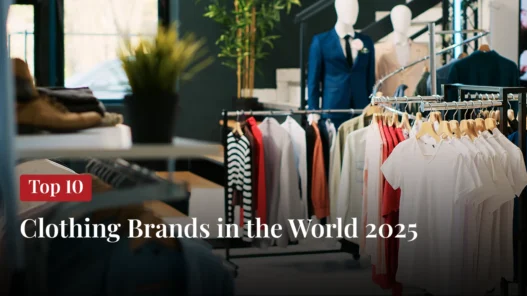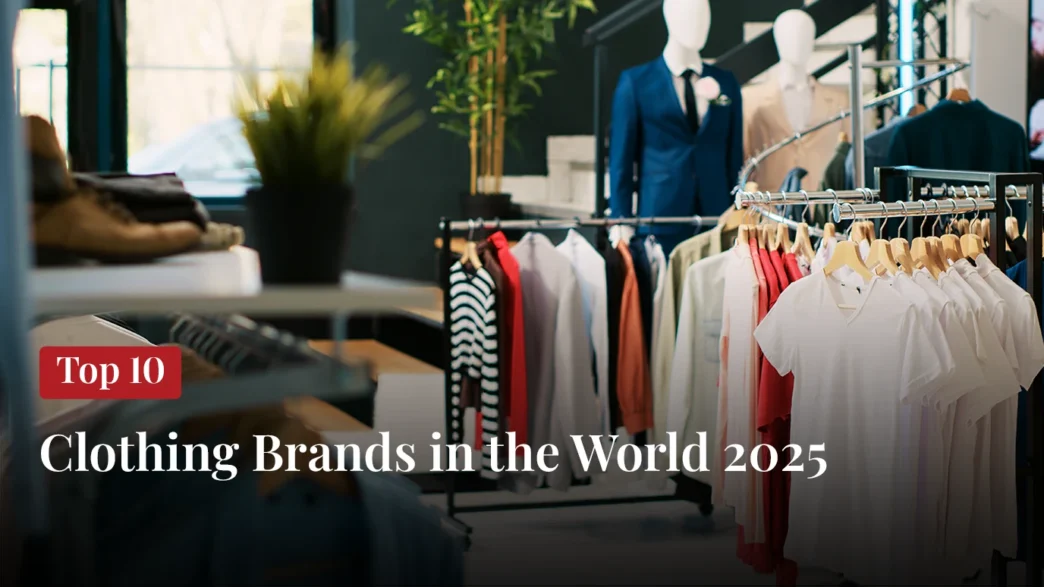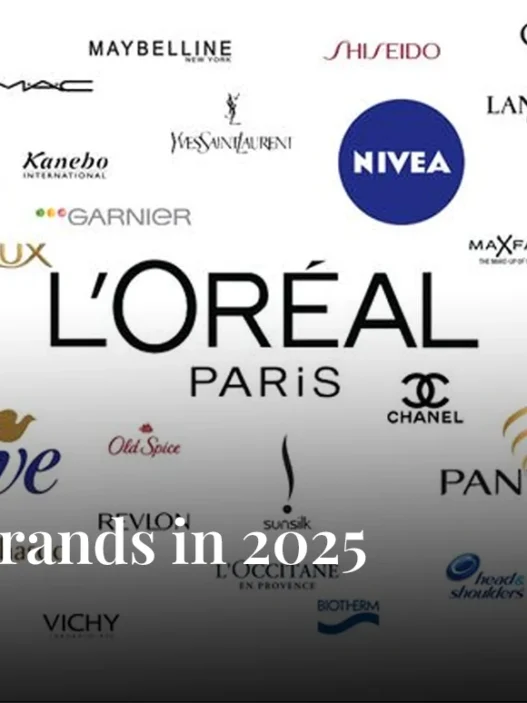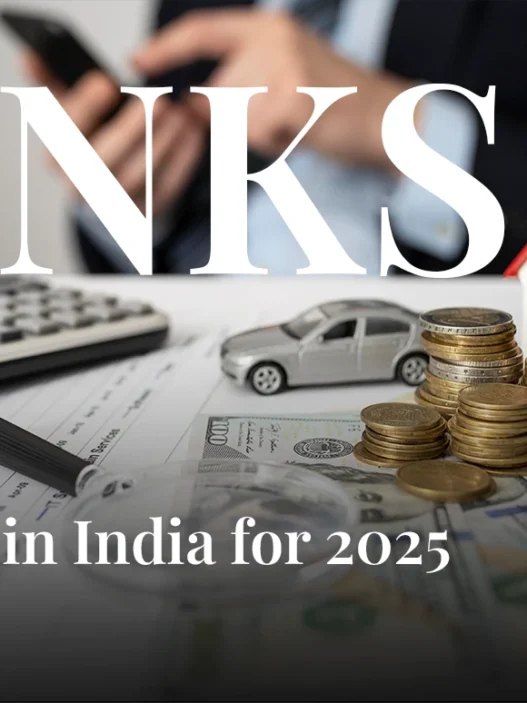Here are the top 10 clothing brands in the world as of 2025, based on market valuation:
1. Nike – $33.2 billion
Nike, Inc. is a multinational corporation that is the world’s largest supplier and manufacturer of athletic shoes, apparel, and sports equipment. Founded on January 25, 1964, as Blue Ribbon Sports by Bill Bowerman and Phil Knight, it officially became Nike, Inc. on May 30, 1971. The company is headquartered near Beaverton, Oregon, in the Portland metropolitan area1.
Here are some key aspects of the Nike brand:
- Innovation and Design: Nike is renowned for its innovation in sportswear design and technology. It has introduced iconic product lines such as Air Max, Nike Pro, and Nike+.
- Marketing and Sponsorship: Nike has a strong marketing presence, known for its “Just Do It” slogan and sponsorship of high-profile athletes and sports teams around the world.
- Global Reach: With a vast global distribution network, Nike products are available worldwide, catering to a diverse range of sports and fitness activities.
- Sustainability Efforts: Nike is committed to sustainability and reducing its environmental impact through initiatives like using recycled materials in its products.
- Cultural Impact: Beyond sports, Nike has become a cultural icon, influencing fashion, music, and lifestyle.
Nike continues to lead as a top apparel brand, inspiring athletes and consumers alike with its commitment to excellence and innovation.
2. Gucci – $18.4 billion
Gucci is an iconic Italian luxury fashion house founded by Guccio Gucci in 1921 in Florence, Italy. It is one of the most prestigious and renowned fashion brands globally, known for its craftsmanship, innovation, and Italian heritage.
Here are some key points about Gucci:
- Creative Direction: Under the creative direction of Alessandro Michele since January 2015, Gucci has redefined modern luxury fashion with its eclectic, contemporary, and romantic designs2.
- Product Range: Gucci offers a wide range of products including handbags, ready-to-wear, footwear, accessories, makeup, fragrances, and home decoration.
- Global Presence: With a strong global presence, Gucci operates in North America, Europe, Asia, and the Middle East through boutiques, franchisees, and e-commerce platforms.
- Sustainability: Gucci is committed to a “Culture of Purpose” sustainability agenda that focuses on environmental impact, corporate social responsibility, and community engagement.
- Cultural Impact: The brand has a significant cultural impact, influencing fashion, music, film, and art. Gucci collaborates with different artists and designers to create unique collections and has been featured in numerous high-profile events.
Gucci continues to be a leader in the fashion industry, synonymous with luxury, style, and sophistication.
3. Louis Vuitton – $17.7 billion
Louis Vuitton, commonly referred to as LV, is a French luxury fashion house and company founded in 1854 by Louis Vuitton. The brand is one of the most valuable and recognized in the fashion industry worldwide.
Here are some key points about Louis Vuitton:
- Product Range: Louis Vuitton is known for its leather goods, including its iconic luggage pieces, handbags, and accessories. The brand has also expanded into ready-to-wear clothing, shoes, watches, jewelry, and sunglasses.
- Innovation and Craftsmanship: LV has a rich history of craftsmanship and innovation, particularly in the design of trunks and luggage, which has translated into its modern luxury offerings.
- Creative Directors: Over the years, Louis Vuitton has been under the creative leadership of notable designers such as Marc Jacobs and Virgil Abloh, who have contributed to the brand’s contemporary and cutting-edge design.
- Global Presence: With a strong global retail network, Louis Vuitton products are sold through standalone boutiques, lease departments in high-end department stores, and through the e-commerce section of its website.
- Sustainability and Responsibility: The brand is committed to sustainability, with initiatives aimed at reducing its environmental footprint and ensuring ethical sourcing of materials.
Louis Vuitton continues to be a symbol of luxury and high fashion, with a commitment to quality and innovation that keeps it at the forefront of the fashion world.
4. Adidas – $15.3 billion
Adidas AG is a German multinational corporation that designs and manufactures sports shoes, clothing, and accessories. It is the largest sportswear manufacturer in Europe and the second-largest in the world after Nike1. Here are some key points about Adidas:
- Foundation and History: Founded in 1949 by Adolf Dassler, Adidas has a rich history in providing athletic wear for various sports disciplines.
- Product Range: Adidas offers a wide range of products including footwear, apparel, and hardware like bags, balls, and fitness equipment. Their clothing line is known for combining comfort, style, and functionality.
- Innovation: The brand is recognized for its innovative designs and technology, such as the Boost cushioning technology in their running shoes.
- Sponsorships: Adidas is known for its sponsorships of athletes, sports teams, and global events, which has helped to solidify its presence in the sports industry.
- Sustainability: Adidas has made commitments to sustainability, with initiatives aimed at reducing plastic waste and improving the environmental impact of their products and manufacturing processes.
- Cultural Impact: Beyond sports, Adidas has become a significant part of urban streetwear culture, often collaborating with designers and celebrities to create highly sought-after collections.
Adidas continues to be a leader in the sportswear industry, inspiring athletes and casual wearers alike with its commitment to quality, innovation, and sustainability
5. Lululemon – $14.0 billion
Lululemon Athletica, commonly known as lululemon, is a Canadian-American multinational athletic apparel retailer. Founded in Vancouver, Canada, in 1998, lululemon is a technical athletic apparel company for yoga, running, training, and most other sweaty pursuits.
Here are some key points about lululemon:
- Product Range: Lululemon is famous for its activewear and accessories, prioritizing functionality, comfort, and top-quality materials. Their activewear often features sweat-wicking fabric, anti-odor features, and four-way stretch materials.
- Innovation: The brand is known for its innovative approach to athletic wear, constantly seeking to improve the performance and comfort of its products.
- Global Presence: Lululemon has a strong retail presence with stores across the globe, and a robust e-commerce platform that makes their products accessible worldwide.
- Community and Lifestyle: Beyond clothing, lululemon fosters a community around wellness and offers events and classes that align with their brand’s lifestyle.
- Sustainability: Lululemon is committed to sustainability, aiming to reduce environmental impact and promote responsible practices throughout its operations and supply chain.
Lululemon continues to be a leader in the athletic apparel industry, inspiring an active and mindful lifestyle through its products and community initiatives.
6. Zara – $13.9 billion
Zara is a Spanish apparel retailer known for its fast-fashion philosophy and is a part of the Inditex group, one of the world’s largest distribution groups. The company was founded by Amancio Ortega and Rosalía Mera in 19751.
Here are some key points about Zara:
- Fast Fashion: Zara is synonymous with the term “fast fashion,” with the ability to design, produce, and deliver new clothing to stores quickly to keep up with rapidly changing trends.
- Global Presence: With over 2,000 stores worldwide, Zara has a significant international presence, offering trendy and affordable clothing for men, women, and children.
- Sustainability: Zara has made commitments to sustainability, aiming to use 100% sustainable fabrics and become carbon neutral by 2040.
- Innovation: The brand is known for its innovative supply chain and use of technology to streamline operations and respond quickly to the fashion market’s demands.
Zara continues to be a leader in the fashion industry, known for its trendy offerings and quick turnaround times.
7. Chanel – $13.8 billion
Chanel is a French luxury fashion house that has been a symbol of timeless elegance and style since its founding in 1910 by Gabrielle “Coco” Chanel. The brand is renowned for its haute couture, ready-to-wear collections, luxury goods, and accessories.
Here are some key points about Chanel:
- Innovation and Signature Styles: Chanel is credited with revolutionizing women’s fashion by introducing the “little black dress,” the Chanel suit, and the iconic perfume Chanel No. 52.
- Creative Leadership: The brand has been under the creative direction of several notable designers, including Karl Lagerfeld and, more recently, Virginie Viard, who have continued Coco Chanel’s legacy of innovation.
- Global Presence: Chanel products are available worldwide, with boutiques in major cities and a strong presence in luxury retail spaces.
- Cultural Impact: Chanel has had a significant impact on fashion and culture, often referenced in films, literature, and popular media.
- Sustainability and Craftsmanship: Chanel is known for its craftsmanship and has made strides in sustainability, aiming to reduce its environmental footprint while maintaining the quality and luxury of its products.
Chanel remains a prestigious name in the fashion industry, synonymous with luxury, sophistication, and enduring style.
8. UNIQLO – $13.2 billion
UNIQLO is a Japanese casual wear designer, manufacturer, and retailer, known for its innovative yet timeless approach to fashion. Founded in 1984, UNIQLO has grown into a global brand with a strong presence in various countries.
Here are some key points about UNIQLO:
- Product Range: UNIQLO offers a wide array of clothing items, including their popular AIRism and HEATTECH lines, which are designed for comfort and functionality.
- Innovation: The brand is recognized for its innovative fabrics and practical designs that cater to everyday life.
- Global Expansion: From its origins in Japan, UNIQLO has expanded worldwide, with numerous stores across Asia, Europe, and the Americas.
- Collaborations: UNIQLO frequently collaborates with designers and brands to create unique collections, such as their partnership with COMPTOIR DES COTONNIERS for the Spring/Summer 2025 collection.
- Sustainability: The brand is committed to sustainability, aiming to create clothing that is both eco-friendly and durable.
UNIQLO continues to be a leader in providing high-quality, functional, and affordable clothing for a wide demographic.
9. H&M – $12.4 billion
H&M (Hennes & Mauritz AB) is a Swedish multinational clothing-retail company known for its fast-fashion clothing for men, women, teenagers, and children. It was founded by Erling Persson in 1947 and has grown to become one of the largest global clothing retailers.
Here are some key points about H&M:
- Global Presence: As of 2022, H&M operated in 75 geographical markets with 4,801 stores under various company brands.
- Product Range: H&M offers a wide range of fashion items including clothing, accessories, footwear, cosmetics, and home textiles.
- Sustainability: The brand is committed to sustainable fashion, aiming to become climate positive by 2040.
- Innovation: H&M is known for its collaborations with high-end fashion designers and celebrities, bringing affordable designer fashion to the masses.
H&M continues to be a significant player in the fashion industry, offering trendy and affordable clothing while focusing on sustainability and ethical fashion.
10. Cartier – $12.4 billion
Cartier is primarily known as a luxury jewelry and watchmaker, with a rich history dating back to its founding in 1847 by Louis-François Cartier in Paris. While Cartier is not traditionally recognized for clothing, it has a prestigious reputation for its high-end jewelry, watches, and accessories that symbolize craftsmanship and elegance.
Here are some key points about Cartier:
- Global Presence: Cartier has expanded its presence to over 60 countries through more than 200 boutiques, making it a leading global brand.
- Luxury and Craftsmanship: The brand has maintained a reputation for daring and free-spirited design, offering products that are the epitome of luxury.
- Cultural Influence: Cartier’s creations have been influential in the world of fashion and luxury goods, often seen as status symbols among celebrities and royalty.
- Diverse Product Range: Although clothing is not the main focus, Cartier offers a variety of luxury goods including leather goods, eyewear, and fragrances.
Cartier continues to be a symbol of luxury and sophistication, with a focus on high-quality materials and timeless design.
These brands have been ranked according to their market valuation, reflecting their prominence and influence in the fashion industry.




















